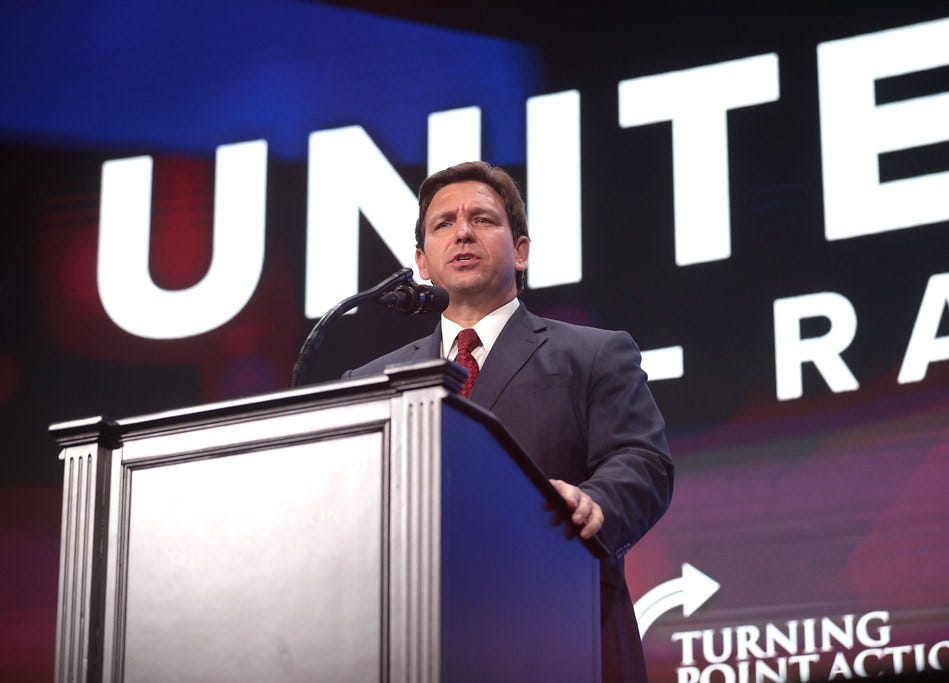Why is Ron DeSantis' presidential campaign struggling?
#58: With Brian Klaas, Julia Azari, Steven Brams
The Hundred is a newsletter in which 3 experts answer 1 important question in 100 words. You can subscribe for free. If you’d like to recommend the newsletter to a friend, you can share The Hundred below. Thank you!
Months ago, Ron DeSantis seemed poised to seriously challenge Donald Trump for the GOP nomination for the 2024 United States presidential election. Today, his polling numbers hover just above those of Vivek Ramaswamy. We ask three US politics experts what happened.

Ron DeSantis made a serious error—as many Republicans have—by wrongly concluding that the GOP base is motivated by policy. In that fantasy world, the pathway to beating Donald Trump lies in ever-greater cultural extremism, by outflanking Trump with cruelty on the social right. Florida, DeSantis said, is where woke goes to die. But in a Republican party devoted to one man, not one slate of policy ideas, that slogan was where DeSantis’s campaign went to die. However, it certainly didn’t help that DeSantis has a smile seemingly forced by algorithm and the charisma of an ironing board.

I wrote a few months ago on my Substack, as DeSantis’ poll numbers fell, about what happened with his candidacy. Like Kamala Harris in 2020 and Scott Walker in 2016, DeSantis looked like a great, even obvious candidate on paper, but turns out to have been caught up in an emerging issue that divides the party. DeSantis’ insistence on a hard-right turn on policy toward historically marginalized groups taking on education, “critical race theory” and gay rights – may not be as popular as he expected, and might prove to divide Republicans rather than rally them to his candidacy.

DeSantis’ dismal poll numbers may reflect the structure of the GOP primary itself more than his own campaign. As I recently argued, Trump “has vociferous support from MAGA voters, who applaud his conspiratorial views on the 2020 election and his defiance of long-established norms”. In short, what draws Trump’s opponents into the fray—that Trump’s views are offensive to many voters, with many donors backing away—might also be their undoing. More opponents joining the race means a more divided opposition. However, as I argue in the aforementioned piece, a simple election reform, approval voting, would ameliorate this problem.
Further reading:
Four Major Challenges Facing Ron DeSantis’s Campaign. New York Times, Trip Gabriel.
Awkward Americans see themselves in Ron DeSantis. Washington Post, Ben Terris.
DeSantis Campaign Continues to Struggle to Find Its Footing. New York Times, Nicholas Nehamas.
That’s it for The Hundred. Please share this post with friends and colleagues if you found it interesting. To support the project, subscribe.




Brian Klaas’ take is closest to the mark in my view. With more space, he might offer an explanation of why the MAGA crowd is so devoted to Trump. Could it be that he gave them a voice they did not have before? After all, MAGA-like people have always been around, but they were largely excluded from the political conversation. it is not about policy but about being seen.